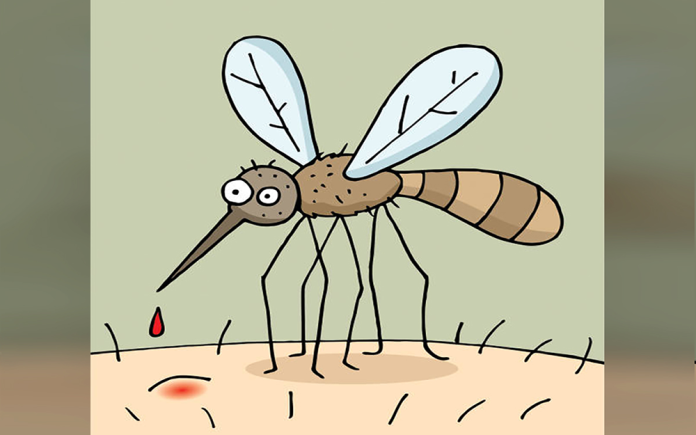
By Haddon Libby
Having spent many summers in Maine as a child, my prayers go out to the people of the Lewiston, Maine area following another mass shooting by the hands of a mentally unstable neighbor. We need to take mental health seriously in this country. This starts locally with more mental health facilities.
I want to talk about something that is itching me. Something I know of in abundant proportions thanks to my time in Maine. I speak not of potato or lobster but the mosquito. This blood-sucking insect is jokingly referred to as the state’s bird. Folklore has it that a swarm has been known to carry a small pet or child to some damp mosquito den.
Following the rains from Hurricane Hilary, the mosquito population is more noticeable than at any point in recent memory. Add to that the discovery of West Nile Virus by the Coachella Valley Mosquito and Vector Control District and we have a potential health risk to our most susceptible residents. The District is acting swiftly by spraying many neighborhoods to reduce the number of mosquitoes while disrupting the transmission of the virus to humans and animals.
According to the control district, there have been 11 cases in Riverside County with none in the Coachella Valley yet. The state has had 183 cases, nearly twice the levels reported at the end of August.
The West Nile virus appears to have entered the United States via New York in the late 1990s. Its origins track to the Tunisia/Israel region. Once landing on the east coast, the virus quickly spread across the rest of the country.
Think of the virus as a watered-down version of COVID. Nearly 80% of people who become infected are asymptomatic with 20% having flu-like symptoms that may last from a few days to a few months. One percent develop encephalitis or meningitis. On rare occasions, the virus attacks the central nervous system which can be fatal.
If infected, the incubation period is three days to two weeks. Symptoms typically include headache, nausea, vomiting and body aches. Lymph nodes sometimes swell while others get a skin rash around the waistline. More serious cases show symptoms like disorientation, tremors, and muscle weakness.
While there is no vaccine for humans, there is one for horses. Before the vaccine, 40% of horses that became infected died.
Most birds serve as hosts to the virus although some can die when infected. Crows, bluejays and grouses often die when infected. The robin and sparrow are considered key to the survival of the virus. Pets like cats and dogs are also suitable hosts.
Like COVID, older people are more likely to suffer with the more severe symptoms while younger folks are likely to be asymptomatic.
To help in keeping the mosquito population down in your neighborhood, it is important to remove standing pools of water. Breeding water can pool in items like an old pot, trash can, old tire, gutter, untreated swimming pool or one that leaks. Leaky sprinkler systems can also be a culprit for breeding zones. Even a bottle cap of water is enough to keep eggs hatching. Eradication is difficult as some mosquito larvae can hibernate until water revives the gestation cycle.
The good news is that cooler temperatures that are accompanied by human snowbirds and tourists put the virus into hibernation mode. Until then, it is best to wear long shirts and pants if you think you will be exposed to mosquitoes. Using a mosquito repellant is also advisable given the potential health effects that an infected mosquito can cause.
Visit cvmosquito.org for updates on spraying activities in the valley.
Haddon Libby is the Founder and Chief Investment Officer of Winslow Drake Investment Management. For more information on our services, please visit. www.WinslowDrake.com.












































